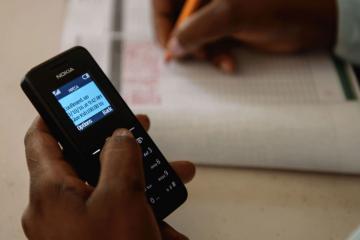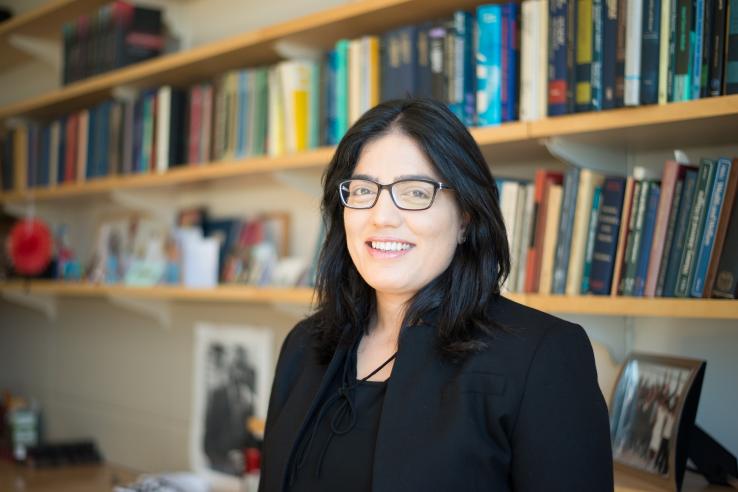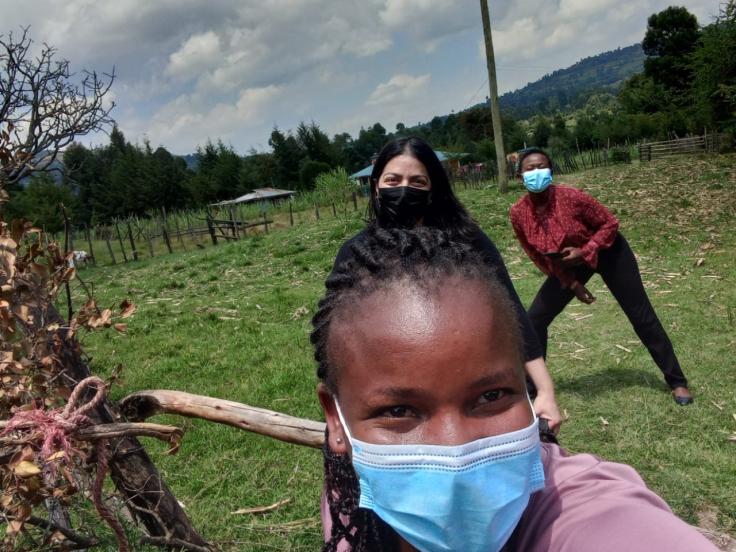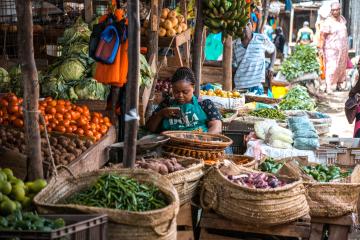
Affiliate Spotlight: Tavneet Suri on the importance of locally-grounded research

A weak internet connection did not stop J-PAL Africa Scientific Director Tavneet Suri from getting her point across in our interview: Good research is done with an ear to the ground and a connection to the community. Calling in from her home country of Kenya, Tavneet emphasized how important it is for research to be grounded in ideas that arise from local communities and contexts.
“We can have our econ ‘hats’ on with some theory in mind, but without a deep understanding of the context and constraints in the particular environment you're working in, it's hard to design interventions that might be useful,” Tavneet explained.
Building a career in randomized evaluations
Tavneet’s first interaction with J-PAL occurred when, as an early-career researcher, she was asked to assist with an evaluation in Sierra Leone by J-PAL’s then-executive director Rachel Glennerster. “It wasn’t my first field project, but it was a great opportunity and a new environment for me,” Tavneet said. After gaining more experience leading her own randomized evaluations, she joined the affiliate network and became a member of J-PAL’s Board of Directors.
Now an associate professor in applied economics at the Massachusetts Institute of Technology, Tavneet grew up in Kenya. For her, pursuing a career related to research and policy was a natural evolution of her graduate studies in development economics. Her recent research has focused on how mobile money can help people adapt to unexpected shocks in the short term and build up investments and savings to improve their incomes in the long term.
This includes seminal research examining the impacts of universal basic income in partnership with the NGO GiveDirectly. In collaboration with GiveDirectly, Tavneet and her team evaluated how unconditional cash transfers impacted low-income families in Kenya in the face of economic uncertainty brought on by the COVID-19 pandemic. They found overall positive impacts on food security and both physical and mental health.

Creating opportunities for African researchers
Tavneet’s work at J-PAL extends beyond field research. In addition to serving as one of the scientific directors of J-PAL Africa, she co-chairs three J-PAL initiatives that aim to generate new research and inform policy decisions: the Agricultural Technology Adoption Initiative, the Digital Identification and Finance Initiative (DigiFI), and the Digital Agricultural Innovations and Services Initiative (DAISI).
Of all of the valuable work Tavneet has led at J-PAL, she describes the African Scholars Program as “dear to my heart.” Through DigiFI, J-PAL Africa dedicated a research fund for researchers who have completed a PhD in economics or a related field and are based at an African academic institution to pursue research on the continent and help build stronger policy connections on the ground. The program was unlike anything any other organization had done before in applied economics, so Tavneet and the J-PAL team had to think creatively about how to structure the program to alleviate the real constraints Africa-based scholars faced when launching new research projects.
“Building the African Scholars Program has been my favorite thing to do over the past couple years, and we couldn’t have done it without the infrastructure that J-PAL provides,” Tavneet said, referring to J-PAL’s vast funding and research network. The model quickly proved to be successful; other initiatives at J-PAL have since launched similar programs to help increase funding for locally-based researchers.
Expanding her reach
Tavneet is now exploring opportunities to bring the African Scholars Program to DAISI, launched in December 2021. The initiative supports innovative, policy-relevant research on bundled digital agricultural solutions and services for small-scale farmers. Incorporating the knowledge and experience of locally-based researchers will be essential to developing and evaluating new interventions.
As Tavneet prepares to pass along some of the hats she wears at J-PAL to newer affiliates, she emphasized how much she has enjoyed this work. According to Tavneet, J-PAL’s ability to connect researchers passionate about similar issues makes research “a lot easier” and more collaborative. “J-PAL as an organization really cares about having an impact, and understands why having a presence on the ground is so important to achieving that impact.”


